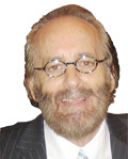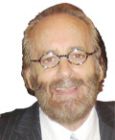Bias
M.L.King Jr.'s Visit With Psychology
M.L.K Jr. addressed the American Psychological Association months before he died
Posted January 19, 2013
M.L.King Jr. was assassinated at barely 39 years of age, having already lead and inspired a massive re-structuring of civil rights in America.His status as a major heroic figure in American history assured (see F.Farley, 2013). He had already been a recipient of the Nobel Peace Prize, foreshadowing the symmetry of President Obama, America's first black President, also receiving the Peace Prize and holding his second inauguration on Martin Luther King Jr. Day, January 21, 2013, using King's Bible.
Of great interest to psychology is that MLK Jr. visited the American Psychological Association (APA) seven months before his assassination on April 4, 1968, to speak at APA's 1967 Annual Convention in Washington, D.C. On September 1, 1967, during his only visit to APA, he delivered an amazing address titled "The Role of the Behavioral Scientist in the Civil Rights Movement". Let me summarize the sub-headings he used in this long, no-holds-barred and inspiring address:
The Civil Rights Movement needs the help of social scientists.
Urban riots.
Vietnam War.
Unemployment.
Civil disobedience.
Role for the social scientist.
Political action.
Creative maladjustment.
The full text of his speech is available at the following link: http://www.apa.org/monitor/features/king-challenge.aspx
You can see from the sub-headings the range of issues he addressed. He asked psychologists to "tell it like it is", to help change American life "poisoned to its soul by racism." He argued for integration not as "...a problem, but an opportunity to participate in the beauty of diversity." He laid out three areas where he felt there was an urgent need for social science to help the civil rights effort: 1) issues of black leadership and unity across socio-economic levels; 2) political action and particularly the role and effectiveness of the vote; 3) needed research on psychological changes in black Americans with the freedom movement, such as optimism versus pessimism, the inner transformation with growing ideological independence, etc.
One of the most interesting features for me of King's visit with psychologists, was his discussion of "creative maladjustment." Taking the word adjustment as rightly a significant term in psychology, noting our frequent emphasis on the importance of seeking "...the well-adjusted life," he suggested the importance of creative maladjustment, being "...never adjusted to racial discrimination and racial segregation...religious bigotry...economic conditions that take necessities from the many to give luxuries to the few...the madness of militarism, and the self-defeating effects of physical violence." He invoked examples of creative maladjustment by Abraham Lincoln and Thomas Jefferson. As the nation's leading exemplar and advocate of non-violence, King concludes that life "...is no longer a choice between violence and non-violence, it is either nonviolence or nonexistence."
Forty-five years after King, in a world where violence continues as an instrument of state in many nations, where the horror continues, and the war at home goes on in America, with gun homicides at levels we must "maladjust" to and must reduce, his comments and challenges to psychology remain important and invite our fresh consideration.
A Personal Note: I met and chatted with MLK Jr., on that special day when he visited the APA Convention, Sept. 1, 1967. It was my first day at my first-ever APA Convention as I recall.. I had just joined the Association upon emigrating to the States from Great Britain. I have since then faithfully attended, I believe, every Annual Convention (that would be 46 in all!), have been elected President of the Association and six of its Divisions and currently serve on its Council of Representatives (is that some form of maladjustment?). But, of course, no single day of the many Convention days since then was as unique as that one. At a massive reception for King, myself and my friend, Bob Grinder, a leading adolescent psychologist, were able to work our way through the crowd to have a conversation with King. It was special. Bob had been in graduate school at Boston University, as had MLK for his doctorate, and our conversation turned to, beyond the civil rights movement or non-violent protests or any of the other profound efforts which Dr. King was leading, to Boston University, with some discovered overlap between the two graduate students in knowledge of courses/professors. They laughed at brief recollections, then MLK paused at the unusualness of this wonderful school-boyish time-warp, and said, "We've come a long way from there!". He was assassinated 7 months later. My friend Bob died last year.
Reference
Farley, F. (2013). Martin Luther King, Jr., A Hero For All Time. http://www.psychologytoday.com/em/116018


